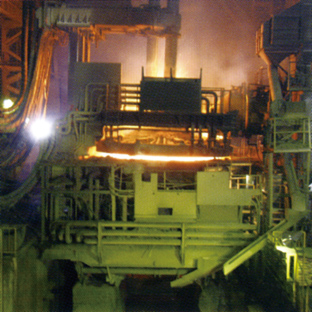
Japanese electric furnace steel makers oppose to proposed electricity price hike by Tokyo Electric Power Company (TEPCO). The price hike in April 2012 could devastate the steel makers’ profitability.
TEPCO announced the price hike on Tuesday to cover higher energy cost for thermal power plants when the firm idles many of nuclear power plants including heavy damaged Fukushima power plants. With the price hike, electric furnace steel makers would pay additional 2.58 yen per a kilowatt hour including tax. Japanese electric furnace carbon steel makers operate only in night time and holiday to utilize lower priced electricity. Their electricity cost is estimated to be 6-7 yen per a kWh depending on the contracts. With the price hike, their cost would increase by 30-40%. The electric furnace steel makers use around 600 kWh for a tonne of steel product including 400-500 kWh for steel making and 100 kWh for rolling mills. With the price hike, their cost would increase by 1,500 yen per tonne of steel product. Some makers’ cost would increase by 2,000 yen per tonne. Electric furnace special steel makers use 100-200 kWh more electricity to make a tonne of steel product than carbon steel makers. With power companies’ proposal, the steel makers shifted their operation to night time to utilize lower priced electricity. A steel maker source said TEPCO’s price hike of same range both for night and daytime is unreasonable when electricity consumption is lower than daytime. Electric furnace carbon steel makers make around 4 million tonnes per year of steel products including 3 million tonnes of concrete reinforcing steel bar and 1 million tonnes of shapes around Tokyo. With 1,500 yen per tonne of cost up, their cost would increase by annual 6 billion yen for them. Some of makers started study for potential production shift to western Japan operations. The higher electricity cost than South Korean makers would damage Japanese steel makers’ competitiveness. The higher cost could encourage lower priced import under high yen rate.











